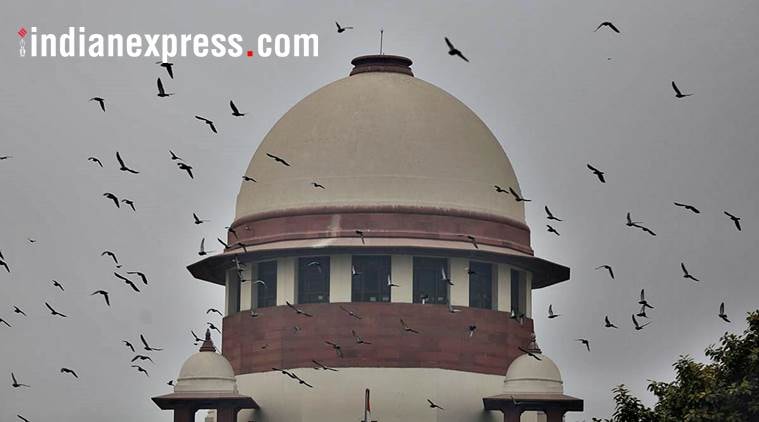Stay updated with the latest - Click here to follow us on Instagram
Pune techie murder case: Supreme Court pulls up Bombay HC over religion remark
Mohsin was killed by a group of 23 people, including two juveniles, on June 2, 2014 while he was on his way to have dinner with a friend.
 The Supreme Court. (Express Photo by Tashi Tobgyal)
The Supreme Court. (Express Photo by Tashi Tobgyal)
RELIGION CANNOT be an excuse to murder anyone, the Supreme Court said as it pulled up Bombay High Court for some of its observations while granting bail to three accused in the June 2014 murder of Pune techie Mohsin Shaikh.
“We have no doubt that a court fully conscious of the plural composition of the country, while called upon to deal with rights of various communities, cannot make such observations which may appear to be coloured with a bias for or against a community,” said a bench of Justices S A Bobde and L Nageswara Rao.
The court was hearing an appeal by Shaikh’s brother against the grant of bail to the accused. Allowing the appeal on February 8, it directed that the accused be taken into custody and their bail plea heard afresh by the high court and decided within six weeks.
What prompted the apex court’s observations was a remark in the high court order that “the fault of the deceased was only that he belonged to another religion”. “While it may be possible to understand a reference to the community of the parties involved in an assault, it is difficult to understand why it was said that ‘the fault of the deceased was only that he belonged to another religion’…”, the apex court said.
It said the aim of the single judge who delivered the order may have only been to emphasise that communal hatred and not personal motive led to the crime. “It is also possible that the learned Single Judge may not have intended to hurt the feelings of any particular community or support the feelings of another community but the words are clearly vulnerable to such criticism,” the bench said, adding “the direction cannot be sustained”.
The apex court said it was “obvious that the fact that the deceased belonged to a certain community cannot be a justification for any assault much less a murder”.
Mohsin was killed by a group of 23 people, including two juveniles, on June 2, 2014 while he was on his way to have dinner with a friend. According to the prosecution, the accused “targeted them because they belonged to a certain community.” The prosecution also claimed that “the accused were said to have been highly motivated to do the act because they had attended a meeting of a body called Hindu Rashtra Sena about half an hour before the incident”.
The Sessions Court had rejected bail saying “that prima facie, the accused were said to have been present in the meeting which was held at about 8.30 pm in which a conspiracy to kill the members of a certain community was hatched”.







